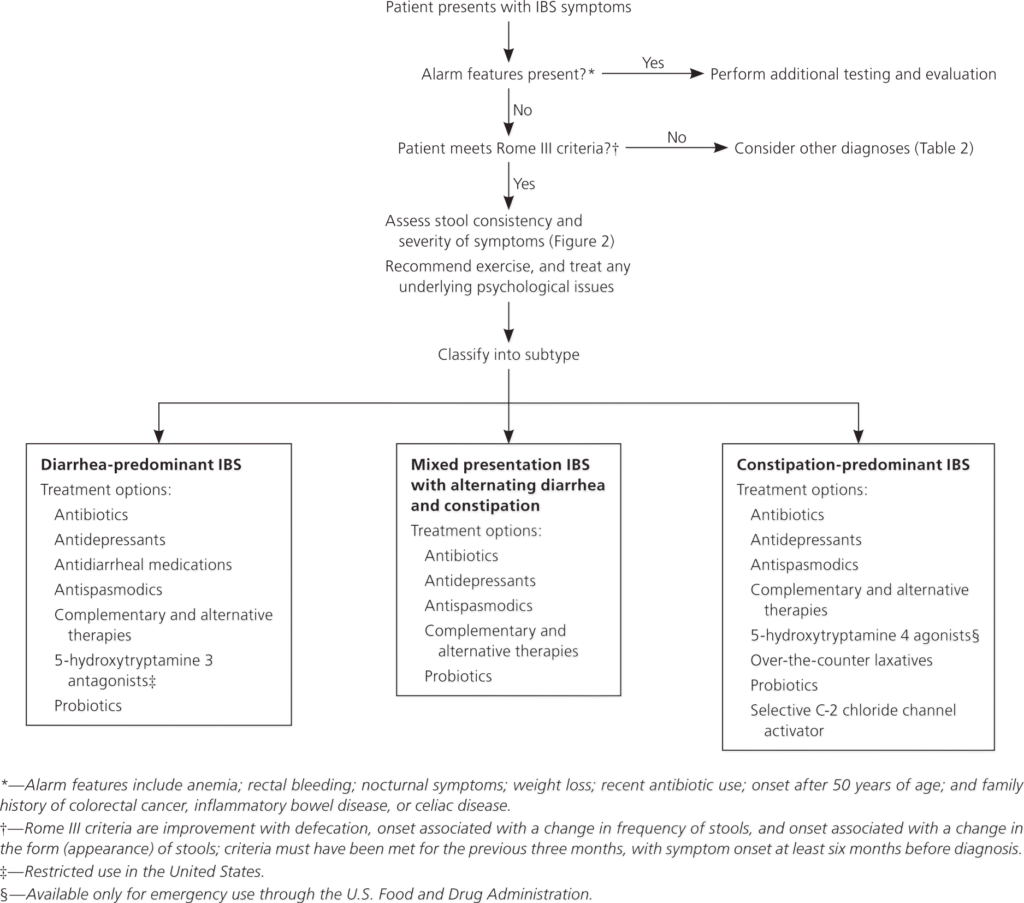Treatment for irritable bowel syndrome usually involves changes to your diet, physical activity, and ways of managing emotional stress. Some people also use medication to control their symptoms. You and your doctor will work together to find a plan that works for you.과민성대장증후군치료
Symptoms of IBS include abdominal pain, bloating, and diarrhea or constipation. They can occur at any time, but are more likely when you eat certain foods or when you’re under emotional stress.

There’s no cure for IBS, but you can manage your symptoms to help improve your quality of life. You may need to try a few different treatments before you find what helps.
Your doctor will examine you, ask about your symptoms and medical history, and do blood tests to rule out other health problems. He or she will probably also do a stool test to look for bacteria, parasites, and bile acid. The stool sample is also used to see if you have celiac disease or other intestinal conditions, such as Crohn’s disease or ulcerative colitis.
You should avoid foods that can make your symptoms worse. For example, if bloating and gas are a problem, you may need to cut back on carbonated drinks, fatty or fried foods, and processed meats. You can also try adding more fiber to your diet, but go slow — too much at once can trigger your symptoms.
Over-the-counter (OTC) antidiarrheal medicines such as loperamide (Imodium, Pepto Diarrhea Control) can help control your diarrhea. If OTC medicines don’t relieve your symptoms, your doctor can prescribe bile-acid binders or laxatives. These drugs can help make your stools less frequent and more solid.
If your IBS symptoms are mainly diarrhea, your doctor may prescribe the drug alosetron (Lotronex). It relaxes your colon and slows the movement of waste through your lower intestine. This can help with severe diarrhea in women who haven’t responded to other treatments. If you’re trying alosetron, be sure to tell your doctor if you have a family history of colorectal cancer or other inflammatory bowel disease.
Antidepressants can ease stomach pain in some people with IBS. If you have depression or anxiety, your doctor may recommend therapy to help you deal with those issues.
IBS isn’t life-threatening, and it doesn’t increase your risk for future colon problems. But it can be frustrating and affect your daily life. You may miss work or school more often, and you might feel as if your life is out of control. You may even need to change your job.해우소한의원